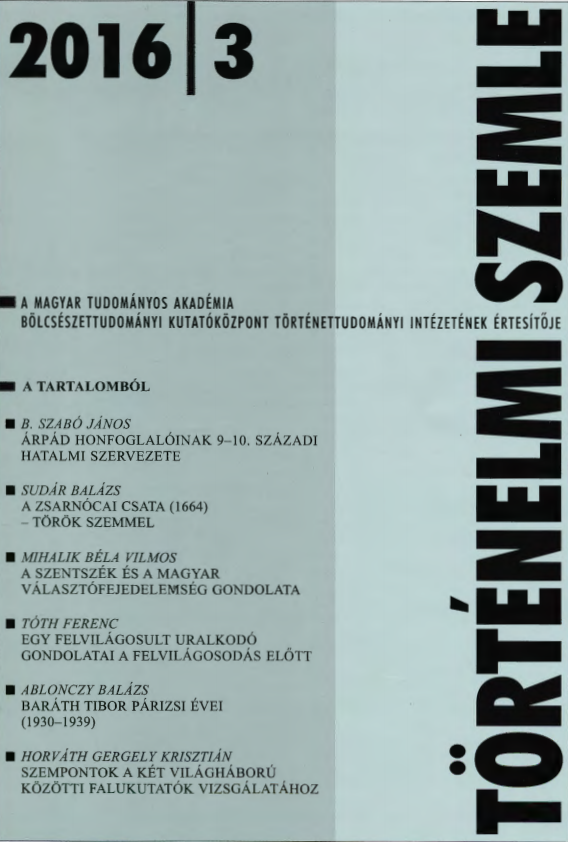A Szentszék és a magyar választófejedelemség gondolata a 17. század végén
The Holy See and the Idea of a Hungarian Electorate in the Late 17th Century
Author(s): Mihalik Béla VilmosSubject(s): Christian Theology and Religion, Military history, Political history, Electoral systems, 17th Century
Published by: Magyar Tudományos Akadémia Bölcsészettudományi Kutatóközpont Történettudományi Intézet
Keywords: Holy See; Hungary; electorate; 17th century;
Summary/Abstract: The anti-Ottoman war of reconquista conducted in Hungary (1683–1699) was also supported by the Protestant Principality of Brunswick-Lüneburg, several members of the princely family personally participating to the war. In return for the military support, Duke Ernst-August wanted to gain an electoral status, and his efforts were backed by the Prince-Elector of Brandenburg. Negotiations already started in 1689, when archduke Joseph, the son of emperor and Hungarian king Leopold I, was elected King of the Romans. The Catholic Electors followed the events with worry, especially from 1691, when the discussions between Ernst-August and the Viennese court started in earnest. The elector treaty (Kurtraktat), which was concluded on 22 March 1692, elicited more considerable resistance from the Catholic princes of the Holy Roman Empire, who feared both that the equilibrium between the confessions would be disrupted, and that the balance of power between the electoral and the princely colleges would be changed. The Catholic princes, and especially the bishoprics in the vicinity of Brunswick-Lüneburg, expected support from the Holy See. But the Holy See was unwilling to interfere with internal disputes within the Empire, especially with regard to the broader European situation, overshadowed by the Nine Years’ War. Yet it did maintain contacts with the Catholic imperial estates through the nuncios of Cologne and Vienna. It may have been from there that the idea of creating a new Catholic Electorate emerged. The idea, relating concretely to the Kingdom of Hungary, was first raised in the spring of 1692. A year later, in April 1693, Viennese nuncio Sebastiano Antonio Tanara came forward with this possibility once again. Parallelly, however, the restoration of rights carried by the Bohemian electoral vote was also proposed. One and a half decades later, during the War of the Spanish Succession, this latter solution was in fact adopted, although in a different political situation. But the very idea of a Hungarian Electorate shows that, after securing the hereditary succession of the Habsburg dynasty in Hungary (1687), the idea of connecting the Kingdom of Hungary to the Holy Roman Empire by elevating it to electoral status was also considered in Viennese court circles. The Hungarian estates were too powerful for such a plan to have real chances to succeed, however. Consequently, it remained no more than an interesting episode in the emergence of the Electorate of Hanover.
Journal: Történelmi Szemle
- Issue Year: 2016
- Issue No: 03
- Page Range: 383-407
- Page Count: 25
- Language: Hungarian

